Emotions ran high and so did the comment count. As the mayor’s race grows increasingly contentious, I’m expecting the BikePortland comments sections to reflect that and to become pretty turbulent places. It’s probably inevitable that some of that froth blows back onto BikePortland itself.
Deep into the thread of the Street Trust/Carmen Rubio story, after readers had exhausted all that could be said about traffic tickets, some turned to the subject of bias in reporting. I wrangle with that topic nearly every day, and I imagine Jonathan does too.
After some back and forth between Jonathan, myself and several commenters, Phillip Barron took up the theme and did right by it in a few thoughtful paragraphs.
Here’s what he wrote:
The idea that journalism is not objective is really not all that controversial. Neither is the idea that bloggers can be journalists. But nor does that mean that newspapers are worthless or that any blogger is a journalist. I have no problem with Fox Vanilla’s thought above or with classifying BikePortland as journalism. It seems pretty obvious that Jonathan and Lisa are journalists; they report on what they (and an ever changing team of writers) deem newsworthy for the bike-interested readers of Portland.
A good wikipedia page cites its sources, which if you were curious, you could follow and see if you accept those references. Or, perhaps, you will accept references to what you seem to think is the standard bearer in journalism, the NYTimes.
The NYTimes seems not to have a problem with either admitting that journalism is produced with bias (1) or with acknowledging that blogs are organs of journalism.(2)
Instead of thinking of these terms in binaries (either one is biased or one is not; either one is a journalist or one is not), I find it more useful to focus on where bias takes place. In journalism, bias affects everything from what a journalist thinks is newsworthy, what an editor thinks deserves front-page coverage, which articles a layout editor decides deserve photographs, which op-eds a publisher chooses to print, how much rope an editor will allow an investigative journalist when the IJ is looking into a scandal involving the newspaper’s owner (I’m looking at you, Washington Post) and so on. Bias affects photographers in how they frame a shot and, as Errol Morris (while writing for the NY Times) notes, what they leave out. (3) We all become much better readers of journalism the more we are actively aware of these biases.
Thank you for taking the time to write that, Phillip. You can read Phillip Barron’s comment, and the rest of the back and forth, under the original post.



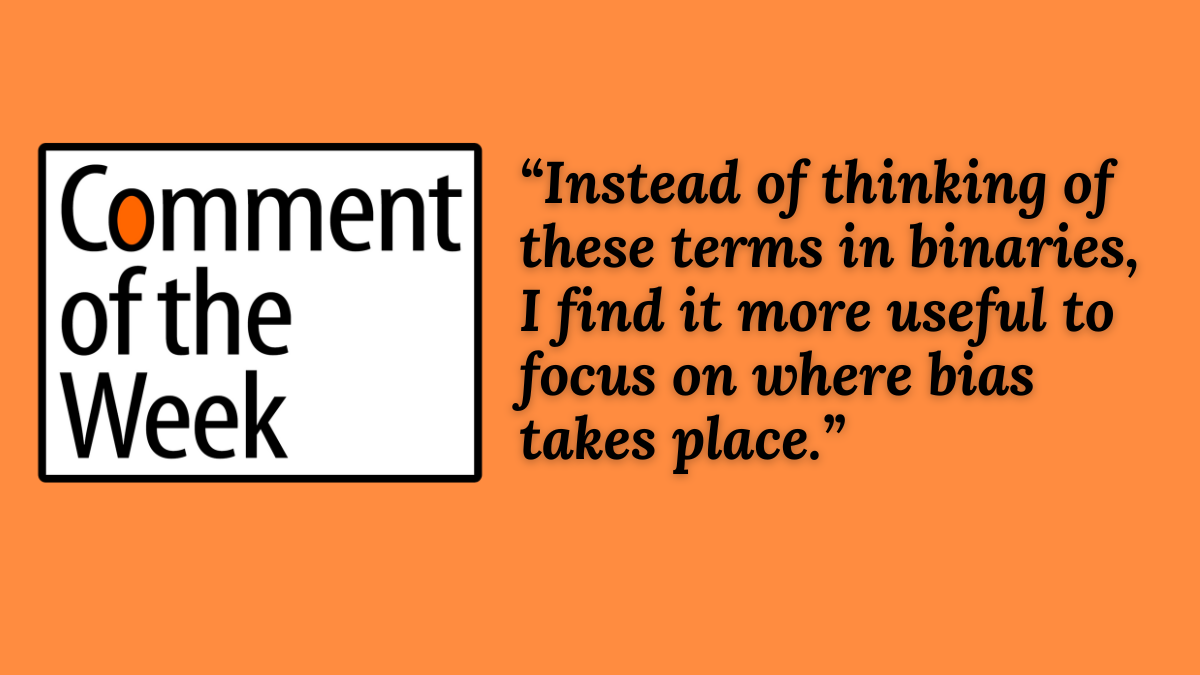
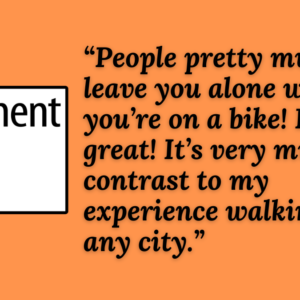
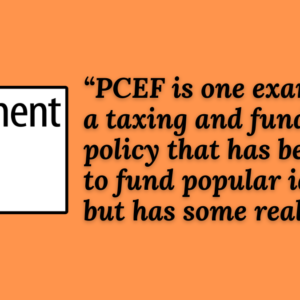
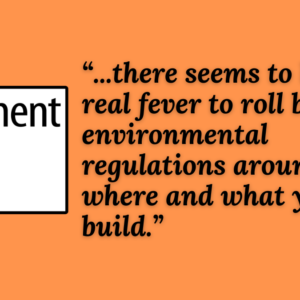
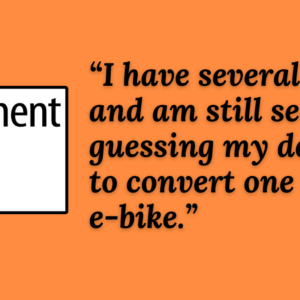
Thanks for reading.
BikePortland has served this community with independent community journalism since 2005. We rely on subscriptions from readers like you to survive. Your financial support is vital in keeping this valuable resource alive and well.
Please subscribe today to strengthen and expand our work.
When I was young, I loved reading the articles and looking at the photographs in National Geographic. Then one day they published about a place I actually knew a thing or two or three about. I was appalled at the overall surface-skimming treatment, not to mention the inaccurate details. I have kept those eyes for over 50 years now whenever I read the “news” from any source.
“Don’t believe everything you read.” was the phrase when I was a kid. I coined my own self-instructive similar phrase about 30 years ago, “The devil can quote the Internet for his own purpose.” (Apologies to William Shakespeare, “The devil can cite Scripture for his purpose.” The Merchant of Venice.) I learned to phrase my questions for Google in at least two different ways, sensing the danger of asserting objective authority for my view when I was just in what became known as the Internet echo chamber. https://en.wikipedia.org/wiki/Echo_chamber_(media)
Jonathan and I have had a few private exchanges over the many years discussing journalism versus editorial writing. Phillip Barron has helped me further refine my understanding and acceptance of bp, and other news sources, as both.
I follow several blogs/substacks/newsletters and, yes, like bp, they are all written on topics and from a point of view that typically dovetail with my own interests and opinions. However, in addition to the above, I try to keep in mind Celeste Headlee’s great Ted Talk, “10 ways to have a better conversation”.
Number two is: “Don’t pontificate. If you want to state your opinion without any opportunity for response or argument or pushback or growth, write a blog.”
https://www.ted.com/talks/celeste_headlee_10_ways_to_have_a_better_conversation/transcript?subtitle=en
And no, I do not think all that Jonathan and Lisa write is pontificating, but I thought that was funny, and it helped me lighten up on the journalism vs editorializing debate (AKA “Get your own blog.”) with Jonathan.
Lucky for us, bp has a comment section so we can all join in on the pontificating. This is mine.
Phillip ends his comment with a remark about becoming a better reader. It’s good advice. Readers should question their motives. What are you reading for? Entertainment? Information? Opportunity to feel outraged?
As a writer, I spend much of my time thinking about the reader, especially with writing a piece that will be read on a screen. How am I leading them? Get ‘um to the next sentence, the next sentence, the next sentence. OK, connect them to the next paragraph. Do they need a break? Photo? cute filler sentence? Pull quote?
The advice I’d give to anyone wanting to take their writing to the next level is, “think less about yourself, and more about your reader.” As commenters, it would probably shorten some comments, and cut down on their frequency. (It’s important to know when to exit stage left for a while.)
Phillip’s comment is insightful and a good pick for COTW. I would suggest that ‘bias’ may not be the most useful term to describe all the subjective factors implicit in publishing and journalism. My objection to ‘bias’ is that using that word implies that there is an ‘unbiased’ form of authorship that we should strive for. I think the power in Phillip’s comment is the recognition that viewpoint in inherent in publication, and objectively unbiased journalism is nonsensical ideal.
Lisa,
Honestly, it doesn’t surprise me that an assistant editor who loves to editorialize would publish a comment downplaying the importance of balance in journalism. Sure, there’s bias in news articles, but balance is still super important for readers to be fully informed and make their own conclusions. If you see Bike Portland as more of a left leaning advocacy blog and not a news site, you can accept it for what it is—an interesting perspective, but not a balanced source of news.
How’d you like my Alpenrose story? Pretty damn balanced. If all you read is the hot-button political campaign stories, well, that says something about you as a reader.
The most biased commenters will see bias in anything that doesn’t support their comments and react more strongly. Entirely predictable.